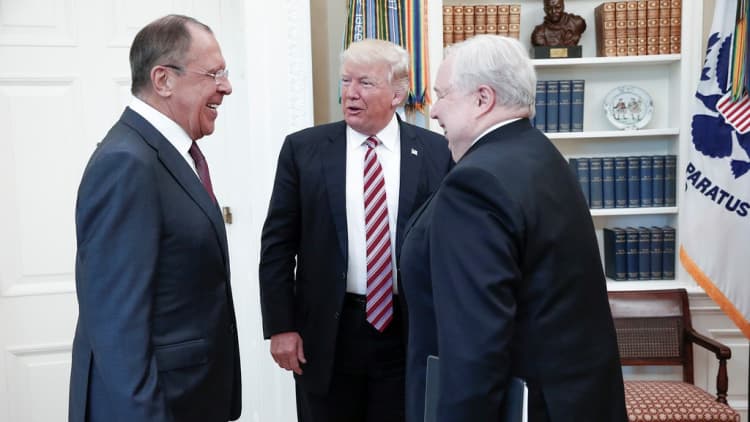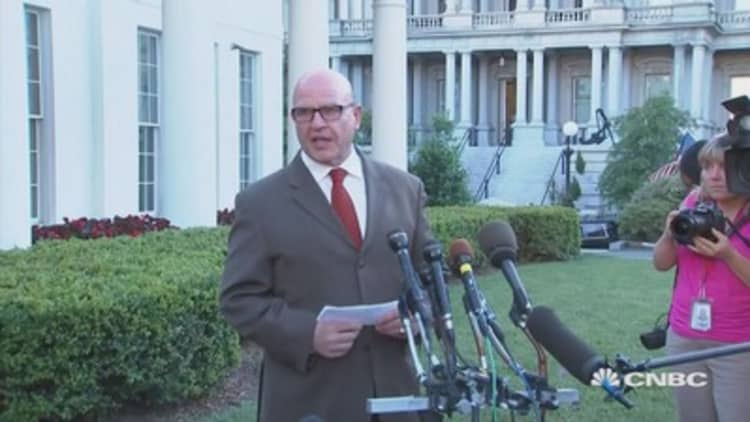
After firing the FBI director investigating his campaign last week, President Donald Trump added a warning: James Comey had better hope there are no tapes of their conversations.
Now, in an explosive Washington Post story, the U.S. intelligence community has hit back — hard. Current and former intelligence officials told The Post that the president, perhaps inadvertently, had revealed highly classified information about Islamic State to the Russian government.
That report increases the chance that Trump's support from Republicans will keep eroding. And it increases the impossible-to-quantify threat to the president's ability to complete a full four-year term. One indication: Senate Foreign Relations Committee Chairman Bob Corker, a Republican from Tennessee, said the Trump White House was in a "downward spiral."
The news will "add fuel to fire" both about Trump's ties to Russia and "to those harboring doubts as to Trump's fitness to be president," said Richard Haass, who heads the Council on Foreign Relations and previously served as a national security aide to both presidents Bush. Haass said Trump's actions "could jeopardize security by alerting enemies, burning sources and making allies less willing to share sensitive intel."
Nor can Trump, who has likened U.S. intelligence officials to Nazis for their handling of information about his associates and Russian interference in the 2016 election, assume that today's disclosures will end attempts by those officials to hold him accountable.

"They're truly frightened about him," said Bruce Jentleson, a Duke University professor who served as a foreign policy aide in both the Obama and Clinton administrations. Noting that an inadvertent disclosure of classified information to Russian officials would demonstrate "incompetence, impetuousness" and "mania," Jentleson added, "I'm scared, too."
The refusal of Republicans to defend Trump in the wake of the Post story shows his support from partisan allies wearing thin. That's damaging on its own to the president's ability to achieve his agenda, among other consequences.
Moreover, it signals political problems that magnify chances for Democrats to regain control of the House of Representatives in 2018 mid-term elections. If they do, Trump would face a serious risk of impeachment proceedings, which a small number of Democratic lawmakers are already suggesting.
As with many controversies involving Trump, this one has provided more questions than answers. What makes it especially hazardous is that it involves a compromise of national security information involving both Moscow, for decades the foremost menace to the U.S., and ISIS, which Americans now see filling that role.
"Until we know what he actually shared, it's a bit reckless to speculate," said Jim Steinberg, a national security aide to the Obama and Clinton administration, about the Post story. "But with Trump, it's possible the leaker deserves the Medal of Freedom."


